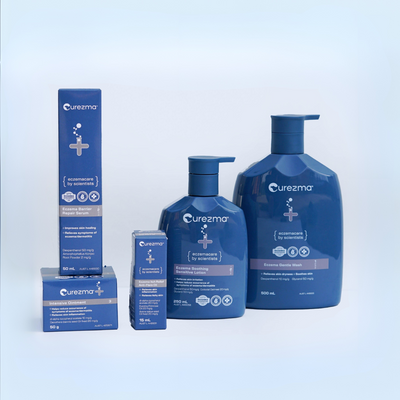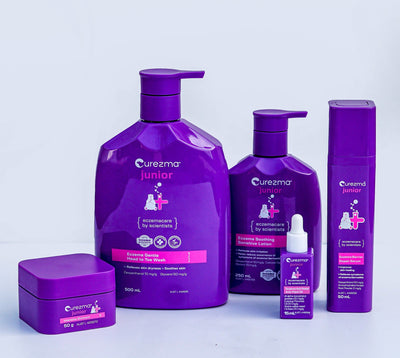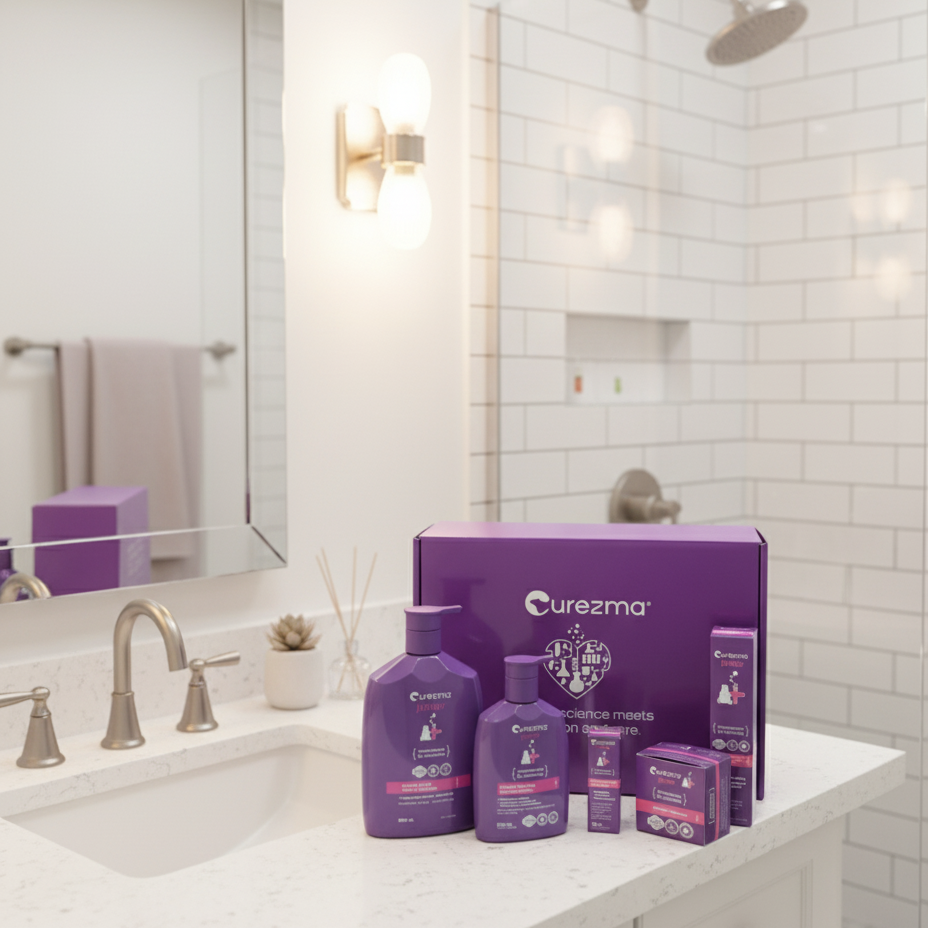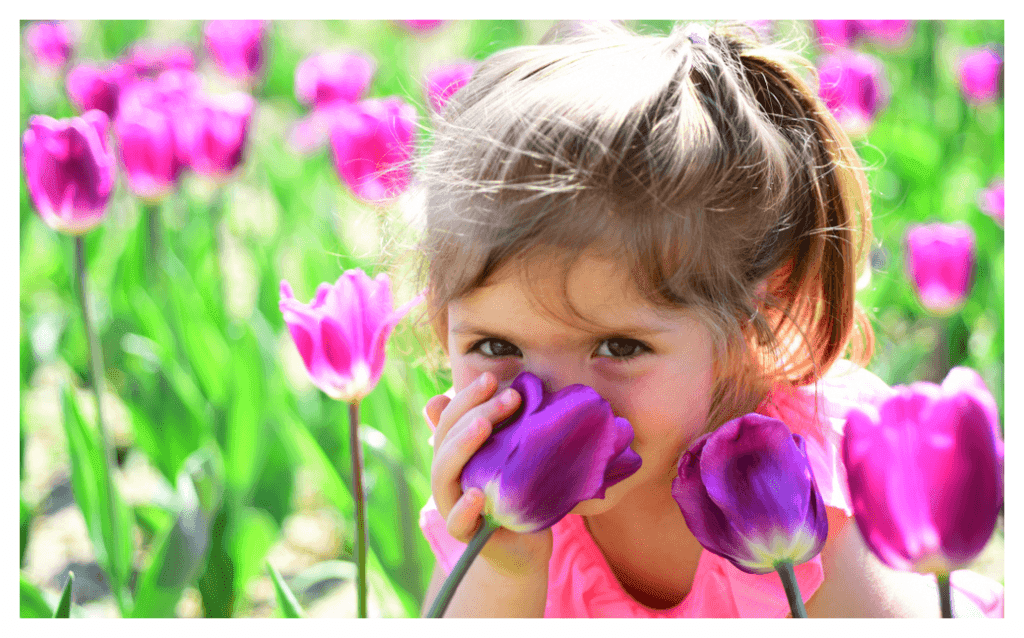Why Your Eczema Gets Worse at Night (And What Actually Helps)

Perfect skincare routine all day. Still scratching at 2 AM.
If this sounds familiar, you're not alone — and you're definitely not doing anything wrong.
Nighttime eczema is one of the most frustrating parts of this condition. Your skin can be calm all day, then suddenly become itchy, inflamed, and impossible to ignore the moment your head hits the pillow.
So what gives?
Your Body Works Against You at Night
There are real biological reasons why eczema flares when the sun goes down and none of them are your fault:
Cortisol drops: Your body's natural anti-inflammatory hormone peaks in the morning and crashes at night, leaving your skin with less defense against flares.
Body temperature rises: You get slightly warmer while sleeping, which can trigger itching and make existing irritation feel more intense.
Fewer distractions: During the day, you're busy. At night, your brain has nothing to focus on except every little sensation on your skin.
You're finally still: No movement means no relief from the constant awareness of how your skin feels.
This isn't a willpower problem or a routine failure. It's just how eczema works.
Build a Buffer, Not a Perfect Routine
Instead of trying to eliminate night flares completely, focus on creating a buffer — a gentle, supportive environment that helps your skin cope when eczema tries to take over.
Create a Calming Pre-Sleep Ritual
Your nervous system and your skin are connected. A calm mind often means less reactive skin. Try dim lighting, no screens, soft pajamas, or a warm (not hot) drink before bed.
Use Overnight Repair Products
Apply Curezma's Barrier Repair Serum to strengthen your skin's defenses, then seal everything in with our Intensive Ointment. This creates a protective layer that works while you sleep.
Get Ahead of Problem Areas
Know your trouble spots? Don't wait for them to flare. Apply Curezma's Anti-Flare Oil preventatively to areas that typically itch at night — think of it as insurance for your skin.
Track Patterns (Without Judgment)
Notice when and where flares happen, but not to blame yourself. Understanding your patterns helps you adjust your environment or routine next time. It's about knowledge, not control.
Nighttime eczema is exhausting and disruptive, but it doesn't mean you're failing at managing your condition.
With gentle adjustments to your environment, the right supportive products, and a shift from "perfect control" to "loving support," your nights can become more restful.
Your body does its best healing while you sleep. Let's help your skin heal too.
References
National Eczema Association
https://nationaleczema.org/blog/eczema-and-sleep
Sleep Foundation
https://www.sleepfoundation.org/physical-health/eczema-and-sleep
Cleveland Clinic
https://my.clevelandclinic.org/health/diseases/9998-eczema-atopic-dermatitis








